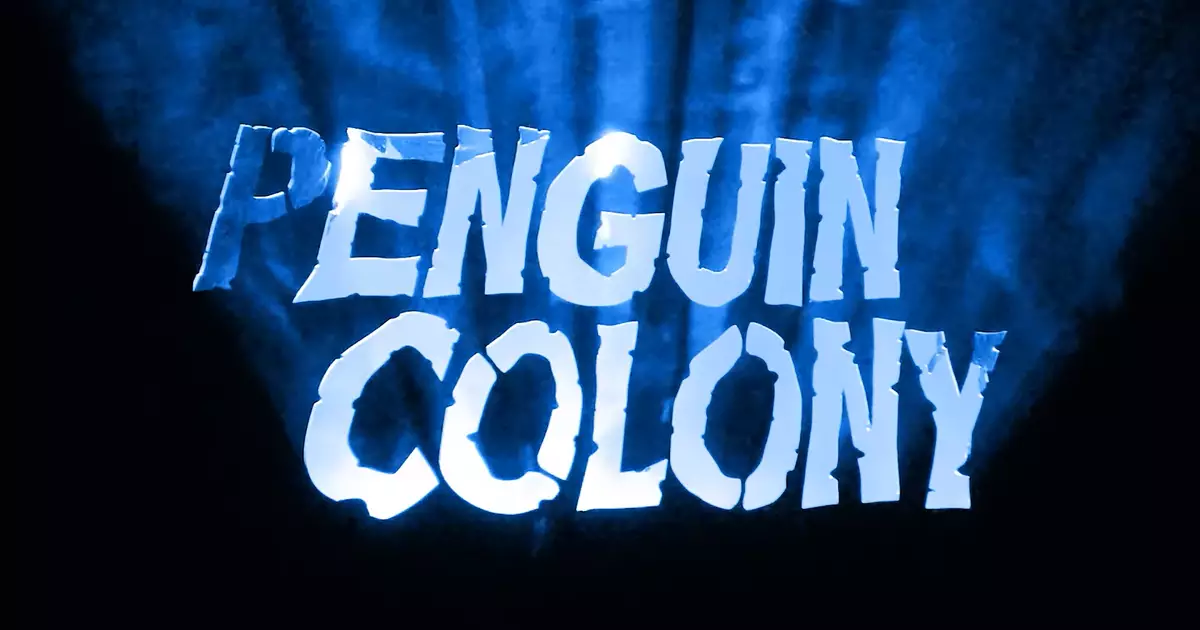In the vast universe of video games, innovation often walks a thin line between brilliance and madness. “Penguin Colony” dares to push this boundary by blending polar wilderness with eldritch horror, political commentary, and a dash of absurdity. Its premise is unapologetically bold: a Lovecraftian-inspired narrative where penguins are not mere creatures of adorable fluff but vessels of cosmic dread, manipulated by ancient, malevolent entities. The developers from Umurangi Generation, celebrated for their insightful critique of colonization and cultural identity, bring a unique perspective to this unconventional project. It’s an ambitious leap, not just for genre-bending but for storytelling itself, challenging players’ perceptions of what a game about penguins can be.
The decision to hire Lenval Brown, known for his mesmerizing narration in Disco Elysium’s esteemed edition, signals an earnest attempt to elevate the narrative beyond gimmickry. His voice lends gravitas to what could have been mere absurdity, injecting a nuanced depth that suggests some profound commentary underlying the chaos. Pairing this with a trailer that visually echoes John Carpenter’s *The Thing* is a deliberate act—one that immerses the viewer in a sense of isolation, paranoia, and the uncanny. Instead of offering a straightforward adventure, the game promises an experience that is unsettling, atmospheric, and layered with meaning. It’s a gamble that could redefine how animals—and perhaps even the environment—are portrayed in horror and adventure genres.
Subverting Lovecraft with Political Consciousness
What is perhaps most fascinating is the game’s potential to critique Lovecraft’s problematic views on foreign lands and peoples. Given Umurangi Generation’s track record, it’s likely “Penguin Colony” will embed commentary on colonialism, environmental destruction, and cultural misappropriation. The inclusion of Māori language in some parts of the trailer underscores an intentional effort to intertwine indigenous perspectives with cosmic horror, perhaps questioning the universality of such ancient malevolence. This foregrounding of political themes within a whimsical setting challenges players to confront uncomfortable truths about our world while navigating icy labyrinths and deep-sea horrors.
The game’s mechanics—specifically, unlocking different penguin types with unique abilities—further hint at metaphorical layers. Playing as an infant penguin with limitations or a seasoned elder with powers could symbolize the human condition, generational trauma, or the struggle against facing the unknown. Beneath the playful veneer lies a mirror to societal hierarchies, cultural resilience, and existential dread. The game refuses to be trivial; it invites intellectual engagement and reflection within a fantastical context.
Absurdity Meets Cosmic Horror: A New Literary Frontier
The absurdity of a game that features racing penguins, quantum quarks, and eldritch monsters may seem frivolous at first glance—but it is this very juxtaposition that makes “Penguin Colony” so compelling. The reference to “Fast Penguin,” a chaotic multiplayer romp, underscores how the franchise teeters on the edge of silliness yet hints at something more profound. This echoes the notion that cosmic horror isn’t reserved solely for oppressive, dark atmospheres—it can also infiltrate the absurd, revealing the universe’s true unfinalizability.
The game’s humor, embedded in its playful penguin lore and references to cosmic entities, serves as a subversion of traditional horror tropes. Instead of pure dread, players are encouraged to confront the absurdity of existence, echoing existentialist philosophies. The idea of controlling different penguins—each with distinct strengths and limitations—can be interpreted as a metaphor for human agency amid overwhelming chaos. It suggests that even in the face of incomprehensible cosmic forces, small acts of resilience and adaptability matter.
A Reflection on Humanity’s Fragile Reality
Ultimately, the allure of “Penguin Colony” lies in its unapologetic audacity. It combines the innocence of penguins with the terrifying, unknowable universe—forcing us to reconsider our place within the cosmic hierarchy. As the universe twists and collapses around us, reminiscent of Lovecraft’s *Mountains of Madness*, the game emerges as a provocative commentary on human vulnerability. The deepening layers of narrative, political critique, and absurd humor assemble into a haunting reflection: perhaps we, too, are mere penguins, desperately sliding across icy surfaces while cosmic horrors loom beneath the surface.
This project isn’t just about creating a quirky, horror-tinged penguin game; it’s a statement on the resilience of storytelling, the importance of cultural critique, and the boundless potential of video games as an art form. By embracing chaos, absurdity, and profound themes simultaneously, “Penguin Colony” could stand as one of the most daring, insightful titles of its genre—an irresistible invitation to confront the universe’s terrifying beauty through the eyes of a waddling, resilient penguin.

